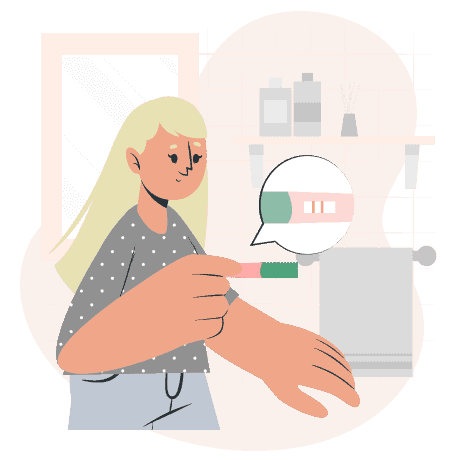Tips and Advice for Trying to Conceive
For couples trying to conceive, the journey can be filled with excitement and anticipation, but it can also be challenging and frustrating. If you're trying to get pregnant, here are some tips and advice to help increase your chances of success.
Starting a family is a joyful and life-changing decision. However, the journey to conceive can sometimes feel challenging and overwhelming. To help make this process smoother and more informed, here are some essential tips and advice for couples trying to conceive.
Understand Your Cycle:
The first step towards successful conception is understanding your menstrual cycle. A woman typically ovulates each month, releasing an egg from one of her ovaries. This period is known as the "fertility window," which usually falls in the middle of your menstrual cycle. Using ovulation predictor kits or tracking your basal body temperature can help identify your fertile days.
Healthy Lifestyle:
A healthy lifestyle can significantly increase your chances of conception. This includes regular exercise, maintaining a balanced diet rich in folic acid, iron, and calcium, staying hydrated, and ensuring adequate sleep. Limiting caffeine and alcohol, avoiding smoking and recreational drugs are also crucial.
Regular Check-ups:
Preconception check-ups can help identify any potential health issues that might affect your ability to conceive. These check-ups usually involve a thorough medical history, physical examination, and sometimes, certain tests. Men should also have a routine check-up to assess their reproductive health.
Maintain a Healthy Weight:
Both underweight and overweight conditions can impact fertility. Maintaining a healthy Body Mass Index (BMI) can help improve fertility by keeping your hormones in balance. Your healthcare provider can help identify the optimal weight range for you.
Limit Stress:
Stress can impact fertility, making it crucial to manage. Consider techniques like yoga, meditation, mindfulness, or simple breathing exercises. Regular physical activity can also serve as an excellent stress reliever.
Monitor Age-related Fertility:
Age is a significant factor in fertility, with a gradual decline starting in the late 20s for women and somewhat later for men. While many couples successfully conceive in their 30s and 40s, being aware of age-related fertility changes can guide family planning decisions.
Avoid Environmental Hazards:
Certain environmental toxins can harm reproductive health. These include pesticides, lead, radiation, and certain industrial chemicals. Take steps to limit your exposure, including maintaining a safe work environment.
Preconception Genetic Counseling:
For those with a family history of genetic disorders, preconception genetic counseling can provide valuable insights. It can help assess potential risks and guide you in making informed decisions about conceiving and pregnancy.
Optimal Timing of Intercourse:
Having intercourse every day or every other day within the fertility window increases the chance of conception. However, don't let this scheduling overpower the joy and intimacy of the process. Keep the experience stress-free and enjoyable.
Be Patient:
Finally, have patience. It's normal for conception to take time. The American Society for Reproductive Medicine states that most couples conceive within a year if they have regular unprotected sex. If you're under 35 and have been trying for over a year, or over 35 and have been trying for six months, consider consulting a fertility specialist.
Remember, every couple's journey to parenthood is unique, and there's no one-size-fits-all approach. Be patient with yourself and each other, and know that it's okay to ask for help. A supportive network of healthcare professionals, family, and friends can make this exciting journey towards parenthood more comfortable and less stressful.

